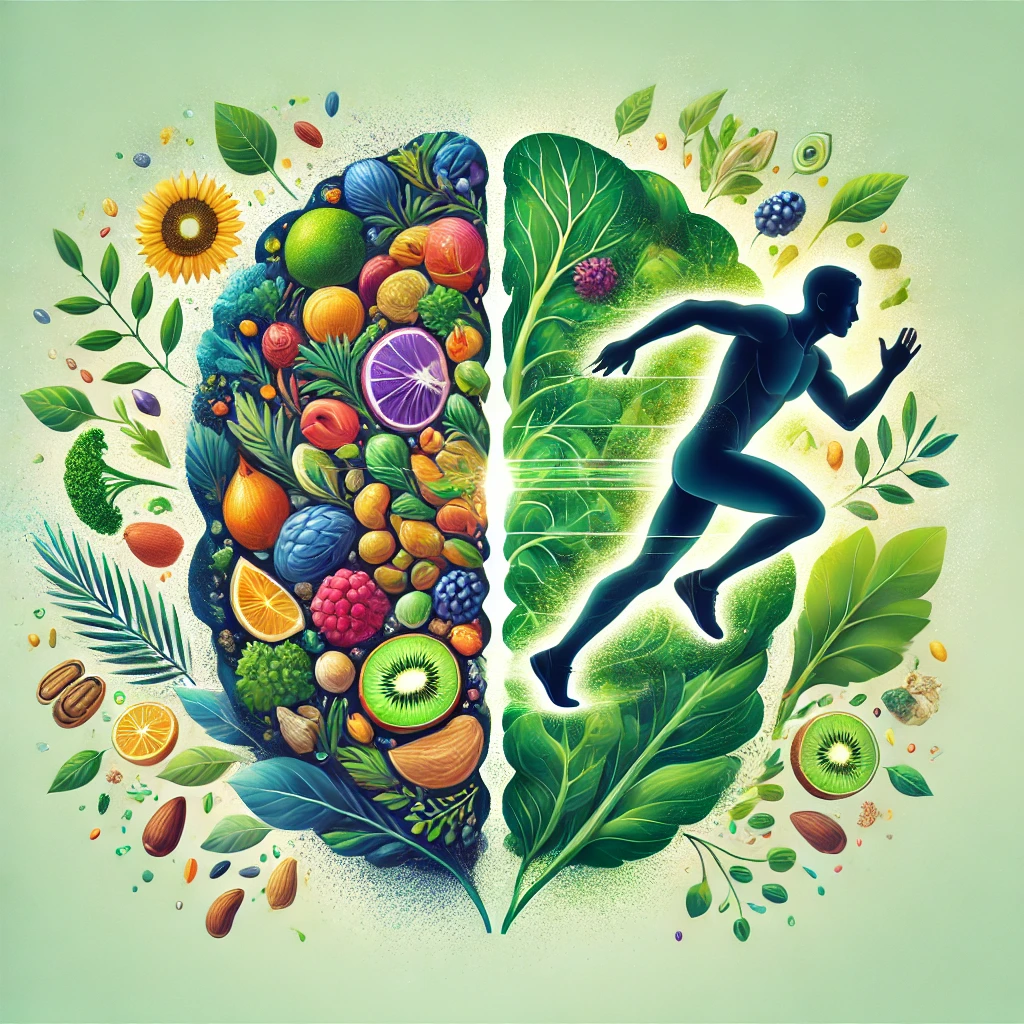PLANT powered Athletes

In recent years, the popularity of plant-based diets has soared, not just among those concerned with animal welfare or environmental sustainability, but also among athletes seeking to optimize their performance and mental well-being. While much of the conversation around plant-based nutrition centers on physical health benefits, it’s becoming increasingly clear that what we eat also profoundly impacts our mental health and cognitive function. For athletes, this connection is particularly important, as mental focus, resilience, and clarity are as crucial to peak performance as physical strength and endurance. In this article, we’ll explore how a plant-based diet can positively impact mental health, focus, and overall athletic performance.
One of the most compelling reasons plant-based diets benefit mental health lies in the gut-brain connection. The gut is often referred to as the “second brain” due to its role in producing neurotransmitters like serotonin, which regulates mood. A healthy gut microbiome, rich in diverse bacteria, is essential for optimal mental health.
Plant-based diets are typically high in fiber, which is crucial for maintaining a healthy gut microbiome. Fiber-rich foods such as fruits, vegetables, legumes, and whole grains act as prebiotics, feeding the good bacteria in the gut. These bacteria produce short-chain fatty acids (SCFAs) that have been shown to reduce inflammation, both in the gut and throughout the body, including the brain. Lower inflammation levels are associated with reduced symptoms of depression and anxiety, providing a clear mental health benefit for athletes.
A well-planned plant-based diet is rich in nutrients that support cognitive function and mental clarity. For example:
Athletes need steady energy levels for training and competition, and a plant-based diet can help maintain balanced blood sugar levels. Unlike refined carbohydrates that cause spikes and crashes in blood sugar, whole, plant-based foods such as fruits, vegetables, and whole grains provide a slow and steady release of glucose into the bloodstream. This helps avoid the mental fog and energy dips that can result from sugar crashes, keeping athletes mentally sharp and physically ready for the challenges ahead.
Several studies have shown a correlation between diet and mood, indicating that people who consume more fruits and vegetables report lower levels of anxiety and depression. Plant-based diets are naturally high in vitamins and minerals like magnesium, which plays a role in regulating the body’s stress response. Magnesium-rich foods like leafy greens, nuts, seeds, and legumes can help reduce anxiety and promote relaxation.
Furthermore, foods high in tryptophan, an amino acid found in plant-based sources like oats, nuts, seeds, and legumes, are precursors to serotonin production. A diet rich in these foods can support serotonin synthesis, contributing to improved mood and emotional stability, which are crucial for mental resilience in sports.
Quality sleep is vital for both mental health and athletic performance, aiding in recovery, muscle repair, and cognitive function. Plant-based diets, particularly those rich in magnesium, potassium, and B vitamins, can promote better sleep quality. For example, foods like bananas, sweet potatoes, and leafy greens help relax muscles and nerves, promoting restful sleep.
Moreover, plant-based diets tend to be lower in saturated fats, which have been linked to sleep disturbances. By reducing the intake of heavy, fatty foods, athletes may experience less digestive discomfort and better sleep, further enhancing recovery and performance.
Mental clarity and focus are critical components of athletic success. A plant-based diet rich in whole, unprocessed foods helps provide sustained energy, maintain optimal blood flow, and reduce brain fog, contributing to improved focus. Foods like dark chocolate, nuts, seeds, and green leafy vegetables are known to enhance cognitive function and can be easily incorporated into a plant-based diet.
Additionally, a diet low in processed foods and refined sugars reduces the risk of energy crashes and mental fatigue. Athletes who switch to a plant-based diet often report feeling lighter and more focused, which can translate to better concentration and decision-making during training and competition.
A plant-based diet offers a wealth of benefits for mental health and athletic performance. By supporting a healthy gut microbiome, providing essential nutrients for brain function, balancing blood sugar levels, and promoting better sleep, a plant-based diet can help athletes achieve optimal mental clarity, focus, and resilience. Whether you’re a seasoned athlete or just beginning your fitness journey, incorporating more plant-based foods into your diet could be the key to unlocking your full potential, both mentally and physically.